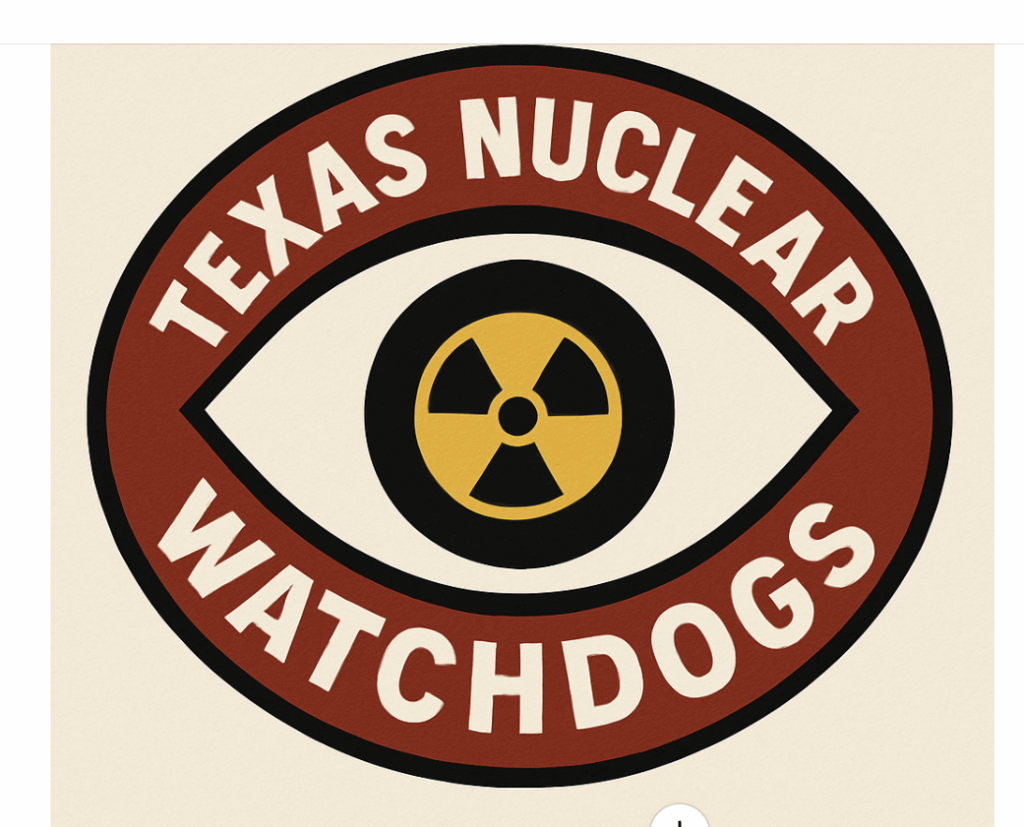
Contacts:
Tom “Smitty” Smith, Former Director of Public Citizen’s Texas Office 512-797-8468
Karen Hadden Texas Nuclear Watchdogs 512-797-8481, Lon Burnam former Texas State Representative 817-721-5846
Diane D’Arrigo Nuclear Information & Resource Service – NIRS 202-841-8588, Susybelle L. Gosslee, concerned citizen 214-732-8610
Leona Morgan Diné anti-nuclear activist 505-879-8547, Rose Gardner – Eunice, New Mexico, Alliance for Environmental Strategies, 575-390-9634
For Immediate Release – June 3, 2025
MEDIA ADVISORY
Supreme Court decision will impact whether radioactive waste is transported nationwide to be stored in Texas and / or New Mexico
Re: Supreme Court to decide NRC v. Texas
A U.S. Supreme Court decision is expected in June in the NRC v. Texas case. The court will first decide whether the Hobbs Act allows the State of Texas’ appeal to the Supreme Court. Secondly, they will decide whether the Nuclear Waste Policy Act of 1982 allows the Nuclear Regulatory Commission (NRC) to license consolidated interim storage sites for spent nuclear fuel, which opponents say is illegal under existing law.
Their ruling will determine whether deadly high-level radioactive waste from the nation’s nuclear reactors can be stored for decades in West Texas. Interim Storage Partners (ISP) seeks a license to store 40,000 tons of high-level radioactive waste above ground in Andrews County, Texas. The decision will also likely impact Holtec’s proposal to store 173,000 tons of spent nuclear fuel slightly below grade in New Mexico at a site between Carlsbad and Hobbs.
Strong opposition to high-level radioactive waste storage came from Governor Greg Abbott, the Texas Legislature, major Texas cities and counties, Andrews County, national organizations, oil companies, ranchers and environmentalists.
The Fifth Circuit Court of Appeals ruled that the NRC had no authority to license consolidated interim storage sites and they cancelled the ISP license. The DC Circuit court ruled differently, rejecting the license challenge. On March 5, U.S. Supreme Court heard the case in which the State of Texas and Fasken Land and Minerals opposed the NRC and Interim Storage Partners.
“We hope the Supreme Court will uphold existing law and decide that the NRC had no authority to license a temporary radioactive waste storage facility. It is illegal to site such a facility until a permanent repository is in place,” said Karen Hadden of Texas Nuclear Watchdogs. “The proposed plans to consolidate the nation’s nuclear reactor waste would put the public in danger, both with transportation and at the storage site.”
“The State of Texas does not consent to being the nation’s nuclear waste storage site,” said former State Representative Lon Burnam. “In 2021 all but three legislators voted to ban storage of high-level radioactive waste in Texas.” Despite clear opposition from the Texas Governor and Legislature, the NRC issued a license to Interim Storage Partners in September 2021.
“If this dangerous waste comes to Texas or New Mexico, it will likely never leave, creating de facto permanent dumps, at sites not designed for long term disposal. The waste must be isolated from living things for a million years, but it may never move to permanent repository if storage containers corrode or leak,” said Tom “Smitty” Smith, former director of Public Citizen’s Texas Office.
If the Supreme Court decides that the waste storage sites can be licensed, unprecedented massive transport of high-level radioactive waste across the U.S. by barge and train would ensue.
“A single rail car would carry as much plutonium as was in the bomb dropped on Nagasaki. Shipments would continue for 40 years or more. Waste that remains deadly for millennia would move from nuclear reactor sites across the country, creating accident and contamination risks along the way. Exposure to radiation is known to cause cancers, genetic damage, birth defects and deaths,” said Diane D’Arrigo of Nuclear Information and Resource Service.
“In the Dallas/Ft. Worth area, trains carrying dangerous high-level radioactive waste would travel past numerous downtown buildings and the Texas State Fair Grounds. An accident could have huge health impacts,” said Susybelle Gosslee, a long-time opponent of radioactive waste transport and storage.
“We don’t want the nation’s nuclear reactor waste here. It would be a recipe for disaster. The proposed Texas and New Mexico sites are in the oil-producing Permian Basin area. The Texas/ New Mexico border region is prone to wildfires. flooding, and increasing sinkhole and earthquake activity. said Rose Gardner of Eunice, NM. Rose lives 5 miles from the WCS low-level radioactive waste site in Andrews County, Texas, where high-level radioactive waste storage is proposed and 30 miles from the proposed New Mexico site in Eddy and Lea counties.
“Through widespread opposition from Indigenous nations and the public and a subsequent 2023 state law, New Mexico stands firm that we don’t want to be made a national sacrifice zone! We don’t want more radioactive waste stored or transported here and we will continue to fight any attempts to do so,” said Diné anti-nuclear activist Leona Morgan.
A Texas law passed in 2021 banned storage or disposal of imported high level radioactive waste and prohibited state permits for such a site. Similarly, New Mexico passed a law in March 2023 that prohibits related state permits.
Related Supreme Court documents can be found at https://www.scotusblog.com/cases/case-files/nuclear-regulatory-commission-v-texas/
###